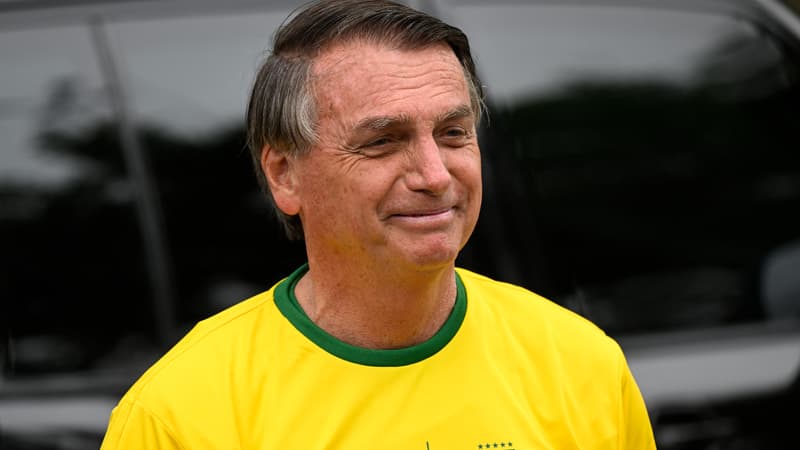The term of President Jair Bolsonaro, which is coming to an end as Brazilians are called to the polls this Sunday, is extraordinary in the modern history of the South American giant: a desire to “deconstruct” what previous governments had done. it has led to many setbacks, according to political scientists.
Without a favorite in the polls, Jair Bolsonaro, who is seeking a second term, nevertheless retains an irreducible base of supporters who adhere to his defense of ultra-conservative values around family, country or God, his anti-corruption diatribes or his contempt for “communism.”
But many analysts consider its balance very negative. “In terms of the environment, education, health, public safety or culture, it’s catastrophic,” said Anthony Pereira, a specialist in Latin America at Florida International University (USA).
Evangelicals reinforced, the Ministry of Culture abolished
First, “you have to deconstruct, undo many things,” warned the president shortly after his installation at the Alvorada Palace in Brasilia in January 2019. He kept his word.
This nostalgic for the dictatorship (1964-85) undertook a crusade against “leftist ideology.” The Ministry of Culture has been abolished, funding has dried up, also for science.
The evangelical churches, whose weight has been reinforced even more, have even weighed in the writing of school textbooks.
Diplomacy has taken an anti-globalization turn and Brazil no longer has many friends on the globe.
“An Order of Destruction”
It was “a mandate to destroy what has been built since the return of democracy,” said Gaspard Estrada, a specialist in Latin America at Sciences Po.
The massive arming of Brazilians has taken the place of public security policy: permits for the possession of a firearm have skyrocketed by 474% from 2018 to 2022, in one of the most violent countries in the world.
The deforestation of the Amazon, favored by the reduction of the budgets and the prerogatives of the surveillance organisms, skyrocketed, in annual average, by 75% under Jair Bolsonaro, deaf to the protests of the international community. Indigenous lands suffered 305 invasions in 2021, 180% more than in 2018.
The second part of the mandate took place in a climate of extreme polarization and tension in which analyst Kevin Ivers of the DCI Group sees “a spiral towards disorder, set in motion by any populist in decline”.
Because the Covid-19 crisis has sunk the popularity of this fierce anti-vaccine. The refusal of the head of state in the face of “a flu” responsible for 685,000 deaths has unleashed dozens of calls for his dismissal. His supporters say he saved the economy from the worst by opposing the shutdowns.
The far-right president has violently attacked the Supreme Court, its judges, and the reliability of the electoral system. “A deliberate strategy (to) tend towards an increasingly autocratic government”, considers the political scientist Geraldo Monteiro, in his “Little anti-Bolsonarista manual”.
ministerial waltz
If there is something positive in this mandate, “it is that Brazilian institutions have worked to protect democracy, worldwide,” said Anthony Pereira.
In the Government, the ministers have danced the waltz: four have triumphed in Health as in Education, due to disagreements with the president or scandals.
Surviving the massacre, the neoliberal Minister Paulo Guedes, of Economy, carried out, however, a reform of the pensions and a great series of privatizations. Major infrastructure projects have been launched.
Jair Bolsonaro treated the Army. He “has militarized the state apparatus by appointing more than 6,000 active or retired soldiers in the federal administration,” recalls Anthony Pereira.
Lack of empathy?
Due to misinformation or his management of Covid, Jair Bolsonaro is the subject of investigations and threatened with prosecution, in particular for “crimes against humanity.”
Commentators have pointed out during the pandemic his lack of empathy for the suffering of the people, called to “stop whining.”
The former Army captain stood firm in his boots, preferring denial or “alternate truth” to excuses, true to his “Trump of the tropics” image.
“Hunger doesn’t really exist in Brazil,” he said, as 33.1 million Brazilians starve and fight over bones in garbage bins in Rio de Janeiro.
Latin America’s leading economy is recovering at the end of his term, but Bolsonaro’s Brazil still deplores double-digit inflation and 10 million unemployed.
A “higher degree” of corruption
Finally, his administration is “free of corruption,” he says. However, its Minister of the Environment, Ricardo Salles, has been involved in international timber trafficking. The Education Minister, Milton Ribeiro, was briefly imprisoned for corruption and influence peddling.
In terms of corruption “we have gone to a higher level,” says Gaspard Estrada.
“The Brazilian situation is dystopian, we are out of reality,” concludes the analyst for whom Bolsonaro will have been “an anomaly in this democracy.”
Source: BFM TV


